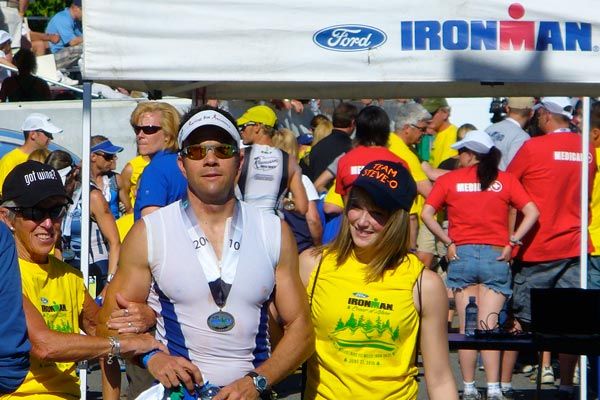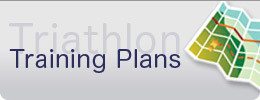Updated on August 5, 2016
A triathlete emailed me an excellent question that is applicable to other IRONMAN Triathlon® athletes as well as other long races like IRONMAN 70.3® triathlons and marathons.
I just completed IRONMAN UK and enjoyed following your training plan to get to the finish line. Can you tell me what to do in the next few days/weeks to best manage recovery and training again at a reduced level?
Besides the immediate post-race actions of rehydrating, replacing glycogen stores (ingesting carbohydrates), facilitating protein synthesis (ingesting protein to help the body repair itself) and rest, there are two demands of racing to consider: physical demands and mental demands.
The Physical Demands of Racing
Your body takes a lot of damage from the race, especially with a full (or half) marathon run at the end. The damage includes muscle soreness, systemic (whole body) inflammation, loss of muscle function and a reduction in aerobic capacity (VO2 max).1 In other words, your body has been stressed extensively, your working muscles have been damaged and you need to time to recover.
Although limited research on the recovery from an IRONMAN race is available, the existing research suggests that a well-trained triathlete can recover from the muscle damage within approximately one week although low-grade inflammation may exist beyond a week.1,2,3
From my own experiences with 28 IRONMAN-distance triathlon finishes where I typically raced two each year, it took me about a week for the soreness in my legs to decrease enough to where I felt comfortable running again and about two weeks to feel back to almost 100% physically, but I didn’t always bounce back mentally, especially for late season races in September or October.
The Mental Demands of Racing
An equally important, but often ignored, component of recovery is the mental demand of training for long periods of time then racing. Staleness, burnout and overtraining are all different conditions, but they share common symptoms like low motivation, mental fatigue, low energy, etc. As both a coach and an athlete, I’ve noticed that the symptoms tend to show up most often for triathletes during long training blocks, after racing excessively, after long races (e.g. 70.3, marathon, IRONMAN, etc.) and towards the end of a racing season.
From own experiences, it always took me a few days after a race to come down from the “high,” then I felt like I had low energy, low motivation and a desire to do something other than training. One coach said the post-race felt like depression to him.
Training Recommendations for Two Weeks Post-IRONMAN
So what should you do in the first two weeks after your race to address both the physical and mental demands of racing?
Post Race Week 1
Take 2 or 3 days off completely after your race. You deserve it! If you do anything in the first 2 or 3 days, do an easy 15-20 minute swim to loosen up your muscles and facilitate blood flow through the damaged muscle tissues. Don’t run at all for at least one week as running the marathon is what caused most of the muscle damage.
Next, take a week (or two) away from structured training (i.e. don’t follow a strict training schedule of swim, bike and run) and just go go do something like walk, swim, bike, trail run, hike, paddle board to give your body time to fully recover from the physical demands of the race and help regain focus and motivation. If it’s the end of the racing season, then take at least month away (maybe two) from structured training to give yourself a mental break.
For my unstructured training breaks, I stopped swimming with masters, stopped biking with my still racing friends and did other activities like hiking and cross country skiing on a casual instead of competitive level. Plus, the light, unstructured training gave me a break away from the stress of trying to fit all my workouts in each day and freed up my weekends to do something else besides long training rides and runs.
Here’s what an example post-race training week 1 might look like assuming your race was on Sunday (if your race was on Saturday, then shift the schedule back one day):
- Monday: Off
- Tuesday: Off
- Wednesday: Easy swim 15′ (minutes) to stretch out and loosen up
- Thursday: Light yoga or stretching 20′
- Friday: Easy bike (small chain ring ring in front, 90+ rpm cadence) 30′
- Saturday: Paddle board or easy swim 30′
- Sunday: Easy bike 60′
Note: ‘ = minutes
Post Race Week 2
For the second week post-race, keep the efforts easy to moderate and start to ease back into more swim, bike and run workouts if your motivation if back. If not, keep it easy and unstructured like week one.
Here’s an example second week post-race training week 2:
- Monday: Off
- Tuesday: Easy to moderate swim 30′
- Wednesday: Hike 60′ or easy run 20′
- Thursday: Easy to moderate bike 45′
- Friday: Paddle board or easy to moderate swim 30′
- Saturday: Easy to moderate bike 90′
- Sunday: Easy run 45′
Then, if you’re feeling good, you’re ready to jump back into your structured triathlon training or, if it’s the end of your racing season, then enjoy your off-season!
Please keep in mind that we all respond to training and racing differently plus have different levels of experience so you may need tweak these recommendations.
The bottom line: A little too much rest is better than not enough. Pay attention to how your body feels, your motivation level and your energy level. Take more days off if needed. Be sure to sleep more, eat well and stay hydrated, too.
When you’re ready to start training again for your next IRONMAN Triathlon, be sure to check out our online training plans and out two webinars created to help you finish faster in your next race:
- Best Practice Training Tips from a Sub 9 Hour IRONMAN® Athlete
- Racing a Full or Half IRONMAN® Distance Triathlon Faster
Good luck and happy training!
David
—
About the Author:
David B. Glover, MSE, MS, CSCS has completed 28 IRONMAN distance triathlons including two sub 9 hour finishes and winning IRONMAN Vineman twice. Now, David’s passion now is helping triathlete and other endurance athletes achieve their dreams through online triathlon education and training programs. David has an MS in Exercise Physiology and is certified as a coach by USA Triathlon and USA Cycling as well as having his CSCS from NSCA. David currently resides in the triathlon mecca of Boulder, Colorado.
References:
- Nosaka, Abbiss, Watson, et al. (2010). Recovery following an Ironman triathlon: A case study. European Journal of Sports Science, 10, 159-165.
- Neubauer, Konig, & Wagner (2008). Recovery after an Ironman triathlon: Sustained inflammatory responses and muscles stress. European Journal of Applied Physiology, 104, 417-426.
- Suzuki, Peaks, Nosaka, et al. (2006). Changes in markers of muscle damage, inflammation and HSP70 after an Ironman triathlon race. European Journal of Applied Physiology, 98, 525-534.


